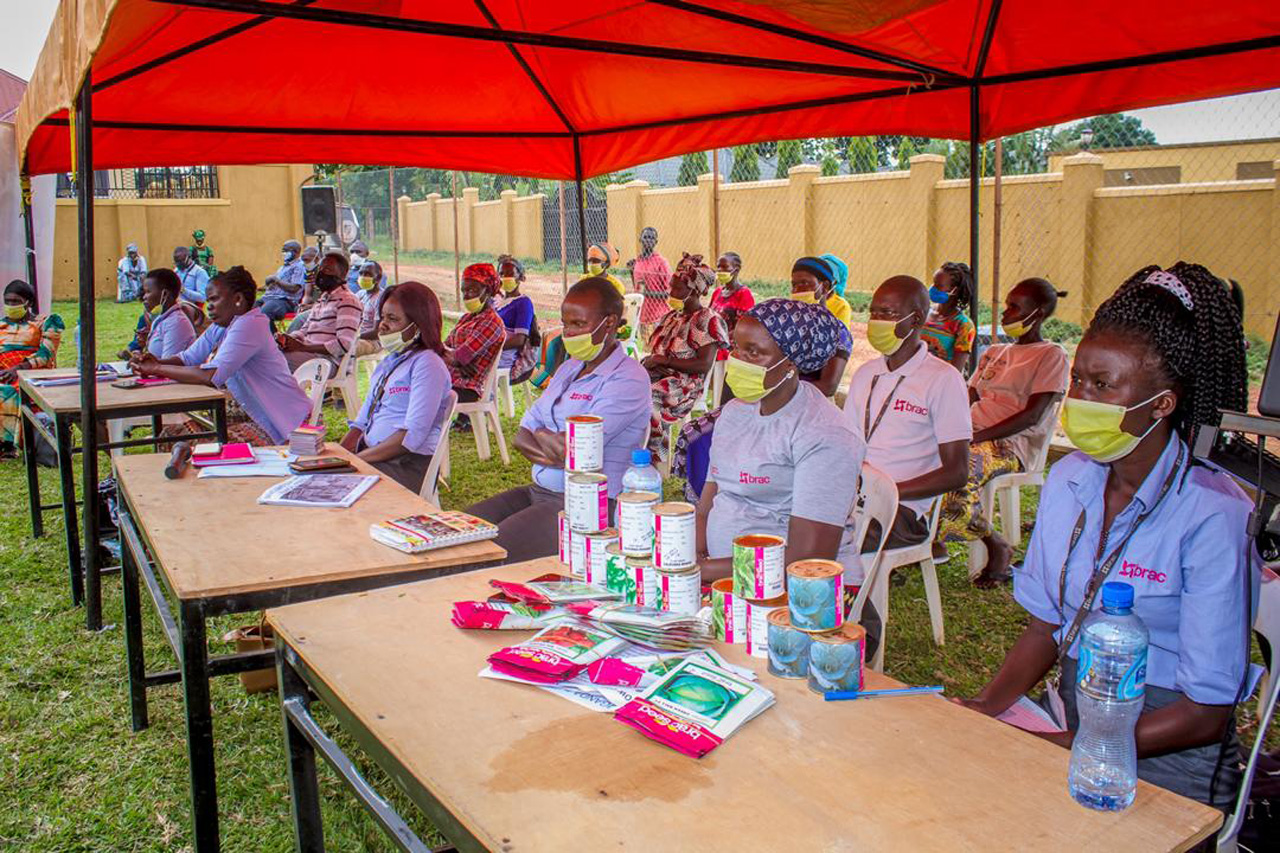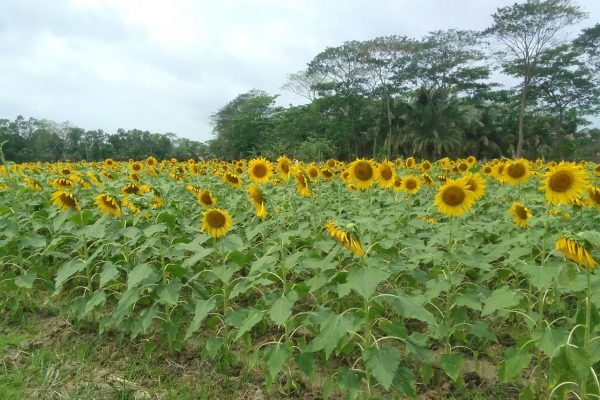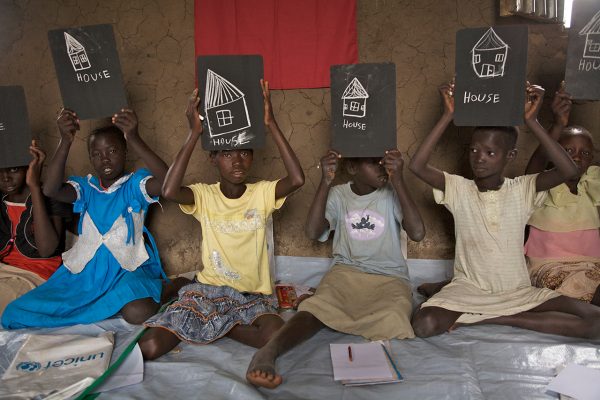BRAC International sets out Covid-19 recovery plan
Reading Time: 3 minutes
As countries emerge from various phases of lockdowns, the key goal at this time is to ensure the continued safety and security of people as they return to the market as producers, vendors, and consumers.
At the onset of the Covid-19 pandemic, BRAC International released a strategic framework to guide its response efforts. The framework outlines the overall response through a four-pronged approach.
The first prong emphasised ensuring the safety and security of BRAC’s own staff. The second outlined an extensive community-based awareness raising campaign to prevent the spread of the virus. The third highlighted response efforts including the importance of partnerships, supporting affected families through case management, and food and income support. The final prong projected the role of BRAC International in supporting social and economic recovery once the outbreak had passed.

BRAC Myanmar staff raising awareness in front of the ward disaster management centre, constructed and managed by BRAC.
Over the past four months, BRAC International engaged all aspects of the organisation in its Covid-19 response activities, reaching over 45 million people in its 10 countries of operation: Afghanistan, Liberia, Myanmar, Nepal, Philippines, Rwanda, Sierra Leone, South Sudan, Tanzania, and Uganda. As countries emerge from various phases of lockdowns, the key goal at this time is ensuring the continued safety and security of people as they return to the market as producers, vendors, and consumers.
To delve deeper into the fourth prong, a recovery strategic framework has been developed to guide BRAC International’s work towards creating sustainable and equitable social and economic recovery.
We will begin the recovery phase through three areas of concentration:
- Public health interventions: Efforts to reduce the spread of Covid-19 while people are at work and in the marketplace will include two types of public health interventions. The first aims to prevent transmission in the workplace and market through promotion of public health interventions like ensuring social distancing, staggered shifts, use of face masks, and proper hand hygiene. The other is early identification of Covid-19 cases and promoting case management at the household level through isolation and quarantine.
- Economic recovery: The first line of economic stimulus will be the provision of financial services through the microfinance programme, including the refinancing and rescheduling of existing clients. We will provide clients with the financial tools needed to amplify their inherent resilience, producing a multiplier effect on the social and economic wellbeing of communities.Through the agriculture, food security and livelihood programme, we will ensure that rural households are able to revive their agricultural activities post-crisis through accessible agri-finance products. BRAC International will expand the ultra poor graduation programme, targeting those who have recently slipped back into extreme poverty as a result of the economic downturn. Wherever possible the organisation will provide technical assistance to governments to implement Graduation programmes building on the expertise of its ultra poor graduation initiative. Finally we will build on the skills development programme to help jobseekers retool for a changing economy.
- Social recovery: BRAC International will maintain primary focus on women and girls through the entire recovery efforts. We will engage all forms of local leadership to promote community-based safety measures. Teams will draw on the experience from the empowerment and livelihood for adolescents programme to create community empowerment. To ensure young children have the best opportunity to learn and develop, we will continue to focus on the early childhood development programme.

Field staff of BRAC Uganda training community members of Koboko municipality on financial literacy, food security and livelihoods.
Partnerships are a crucial component in any recovery effort. In both disaster and humanitarian response and recovery, multiple organisations work together to reach the ultimate goal of saving lives and resources, and returning the community to normalcy. we will actively seek partnership with local governments, service delivery institutions in health, education, and other areas, community-based organisations, local and international NGOs, academic institutions, and private sector actors.
Building from experiences during post-disaster recovery, BRAC International will continue to strive for a world free from poverty and exclusion. As this is a constantly evolving situation, we will adjust this strategy as needed and apply its components in each operational country as appropriate.
Musharrat Bidita is deputy manager at Communications, BRAC International.





